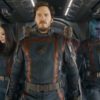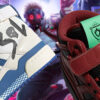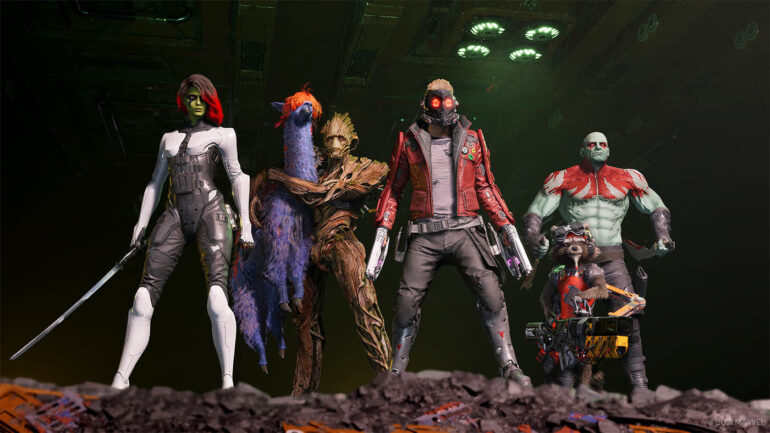
Marvel’s Guardians of the Galaxy launches on PS5, PS4, Xbox Series X|S, Xbox One and PC on October 26th. You can pre-order the game HERE.
When Square Enix and Eidos Montreal first revealed Marvel’s Guardians of the Galaxy, one of the first questions on Marvel fans’ minds was how players would interact with and control the Guardians themselves. As it turns out, unlike the recent Marvel’s Avengers, the answer is that just one member of this roster is actually playable – the team’s leader, Star-Lord (real name Peter Quill). Essentially, what this means is that players will have only indirect control of the rest of the Guardians, namely Rocket, Groot, Gamora and Drax.
It might sound like a missed opportunity to cast players as arguably the least unique member of the Guardians, but thanks to getting our hands on the game we can finally start to understand the decision. Marvel’s Guardians of the Galaxy is about more than stepping into the shoes of Star-Lord, it’s about stepping into the shoes of a leader.
The game achieves this in a number of ways, with the most obvious being the numerous choices that Peter Quill must make throughout the Guardians’ exploits. Being the diverse and colourful cast that they are, the members of the Guardians don’t always see eye-to-eye. That leaves Quill to mediate and make tough decisions that could affect both the outcome of the mission and the mood aboard their ship, the Milano.
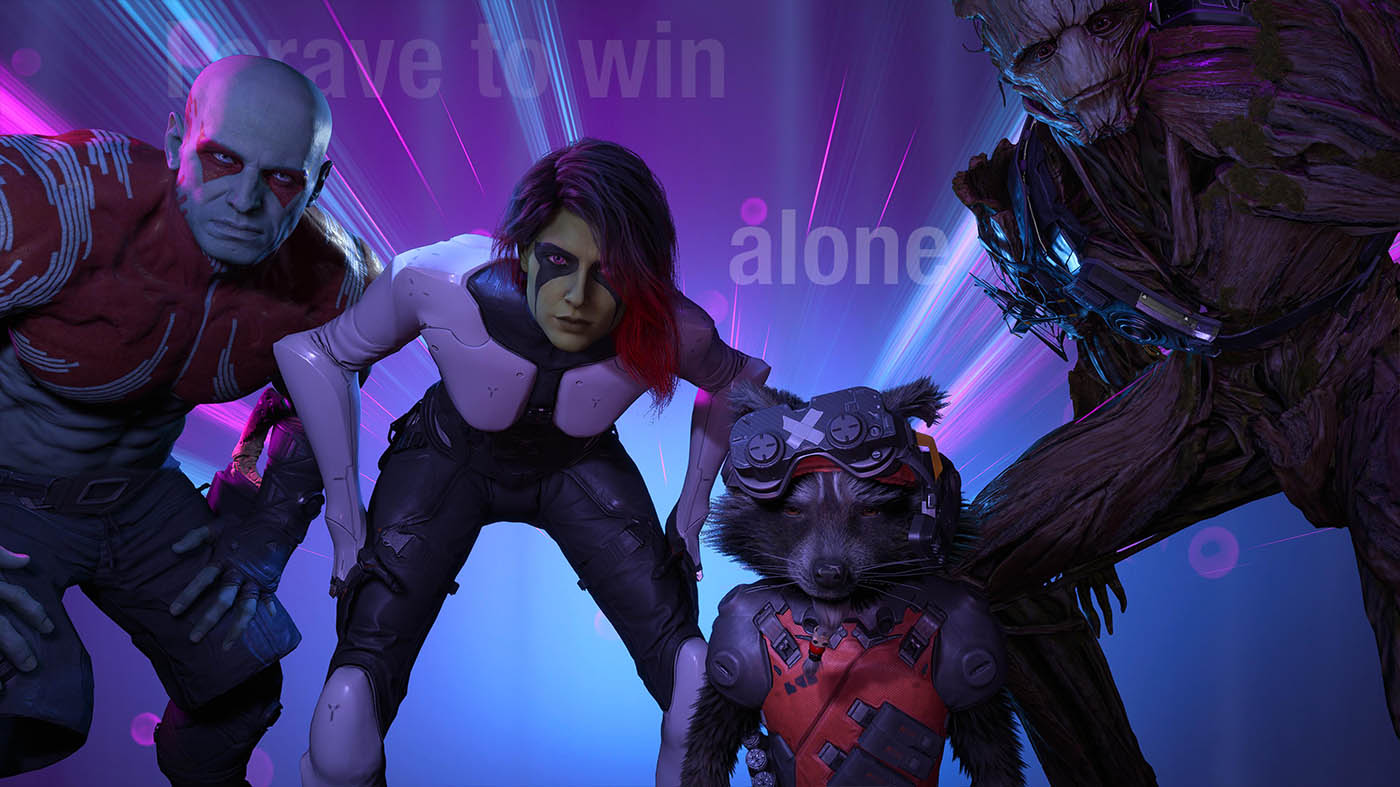
Some of these decisions simply see Star-Lord settling petty squabbles between team members – a natural byproduct of co-living, I’m sure. Others have actual consequences both short and long term, such as Peter’s attempts to ‘sell’ Rocket to the monster collector, Lady Hellbender, in the game’s fourth chapter. I made the mistake of trying to pass him off as cute and cuddly, which angered Rocket enough that he broke character and started firing at our mark and made us targets. This felt like a crucial turn in the narrative, so I’m sure that something would have gone down either way, but the manner in which I approached it meant that Rocket responded to me quite differently for the rest of the chapter than I imagine he would’ve had I not implied he was a raccoon.
It’s not always about tough, binary choices though with players also given plenty of opportunity to direct the other Guardians out in the field. Environmental hazards and obstacles are often outside of Star-Lord’s reach or ability and so he’ll need to call on the others to use their unique talents and help the team progress. Throughout the chapters that I played these moments ranged from the obvious (small vents that Rocket can climb into to unlock doors) to multi-part puzzles that took the combined efforts of Drax’s strength, Groot’s extended reach and Gamora’s acrobatics. Every member is plenty capable on their own, but it’s Quill’s ability to identify opportunities with his visor and bring the team together that makes him – and the player – the leading force.
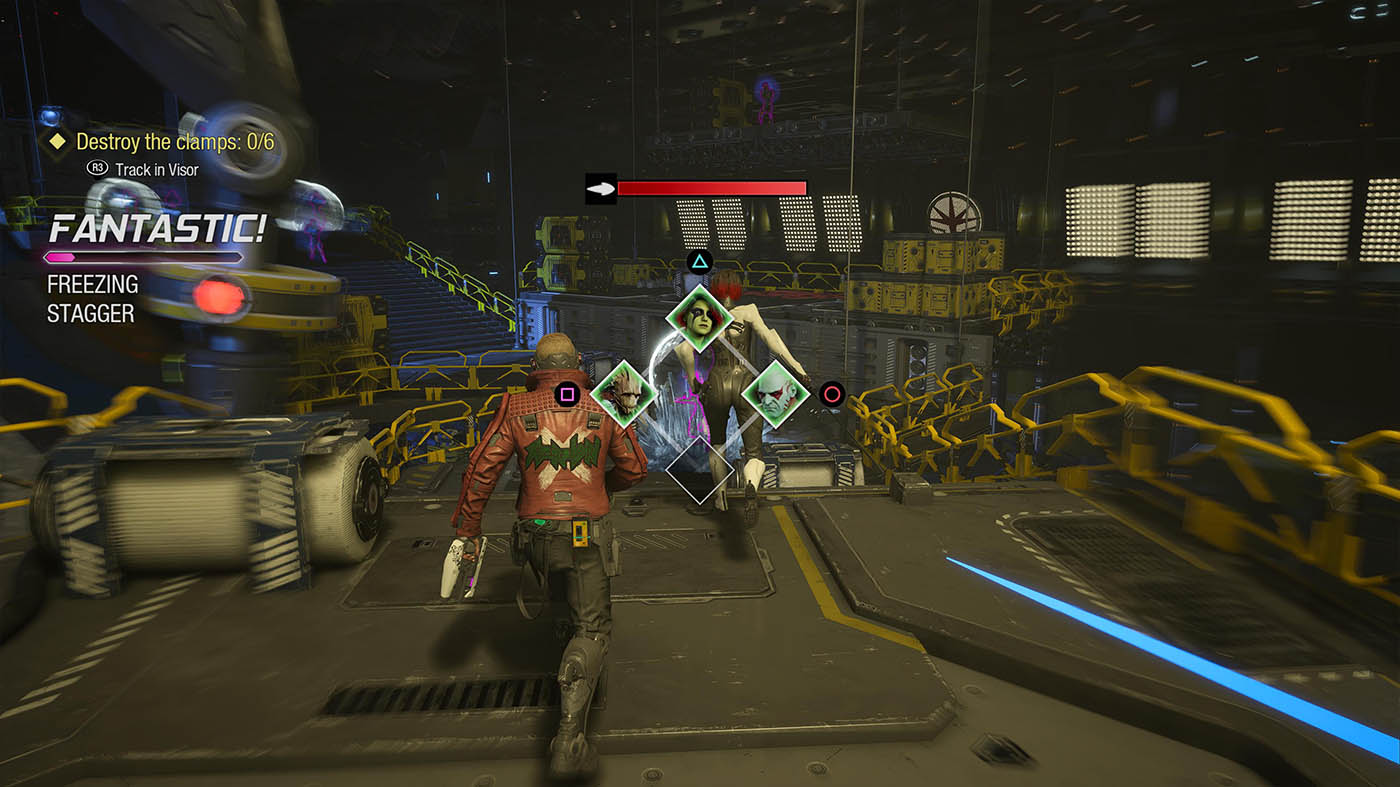
While his blasters are plenty capable of chewing through enemies, especially when elemental abilities are added into the mix, Star-Lord needs to coordinate his colleagues to ensure success. In a twist that feels oddly reminiscent of another Square Enix game – namely Final Fantasy VII Remake – players can slow time to bring up a menu that gives them access to the other Guardians’ special abilities. These abilities, which are gradually unlocked through levelling up and have mercifully quick cooldowns, are crucial to controlling enemy groups and keeping everyone alive.
When the going does get tough with enemy numbers overwhelming and teammates downed, Quill can call a ‘Huddle’, if he has one available. These bring the Guardians together to collect themselves, express their concerns and observations, and receive a pep talk from their fearless leader to hype them up. Pick the dialogue choice that best fits your crew’s feedback and you’ll not only resurrect any downed members but the entire team gets a boost to their effectiveness and a random track from the game’s banging selection of 80s hits plays over the ensuing carnage. Not a bad way to turn the tides and get the blood pumping again.
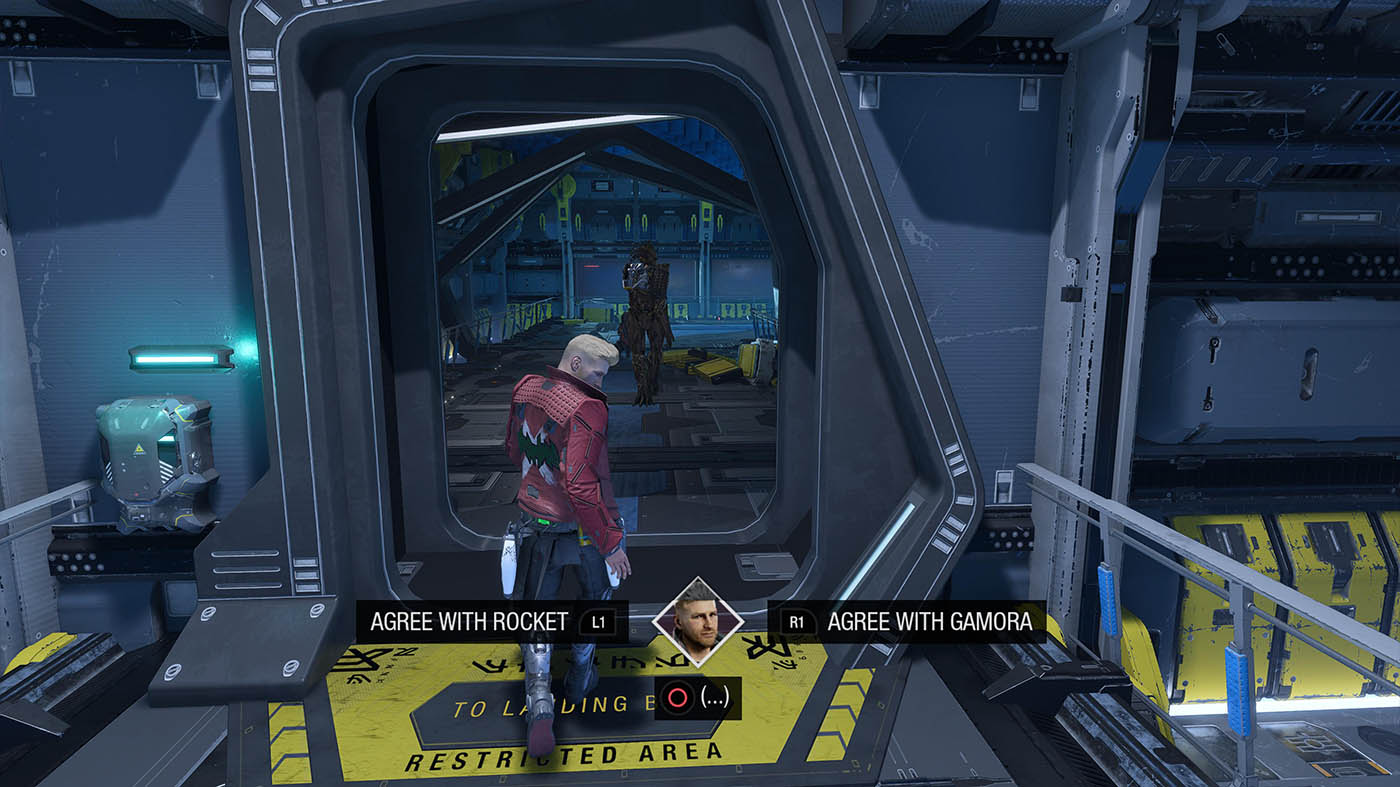
One of the more interesting wrinkles across all of these systems is that while Marvel’s Guardians of the Galaxy gives you the tools to be a leader, you’re never guaranteed to be a good leader. In fact it’s entirely possible to fail at it, though thankfully the game almost always continues along regardless. For example, most times that you’re given dialogue options with a time limit to answer, simply not choosing is also an answer, though it’s obviously not super helpful and won’t make your team overly happy.
Likewise in exploration sequences, where Star-Lord needs to solve environmental puzzles by requesting help from a Guardian with the right skillset, if he continually asks for help from the wrong members the rest of the team will generally pick up the slack and figure it out on their own. Or, if they’re unhappy enough with you, they might flat-out refuse until you’ve asked a second time – something I learned the hard way with Rocket while playing the game’s fifth chapter.
Even during the aforementioned Huddles, saying the wrong thing can mean that the pep talk falls flat and only Star-Lord receives a boost. Allowing Quill to make natural mistakes is a neat way to show that he’s not infallible as a leader, and to put extra pressure on the decision-making in the game without getting in the way of the fun by being overly punitive. It means mistakes will hopefully feel more like setbacks and not immediate failure states.
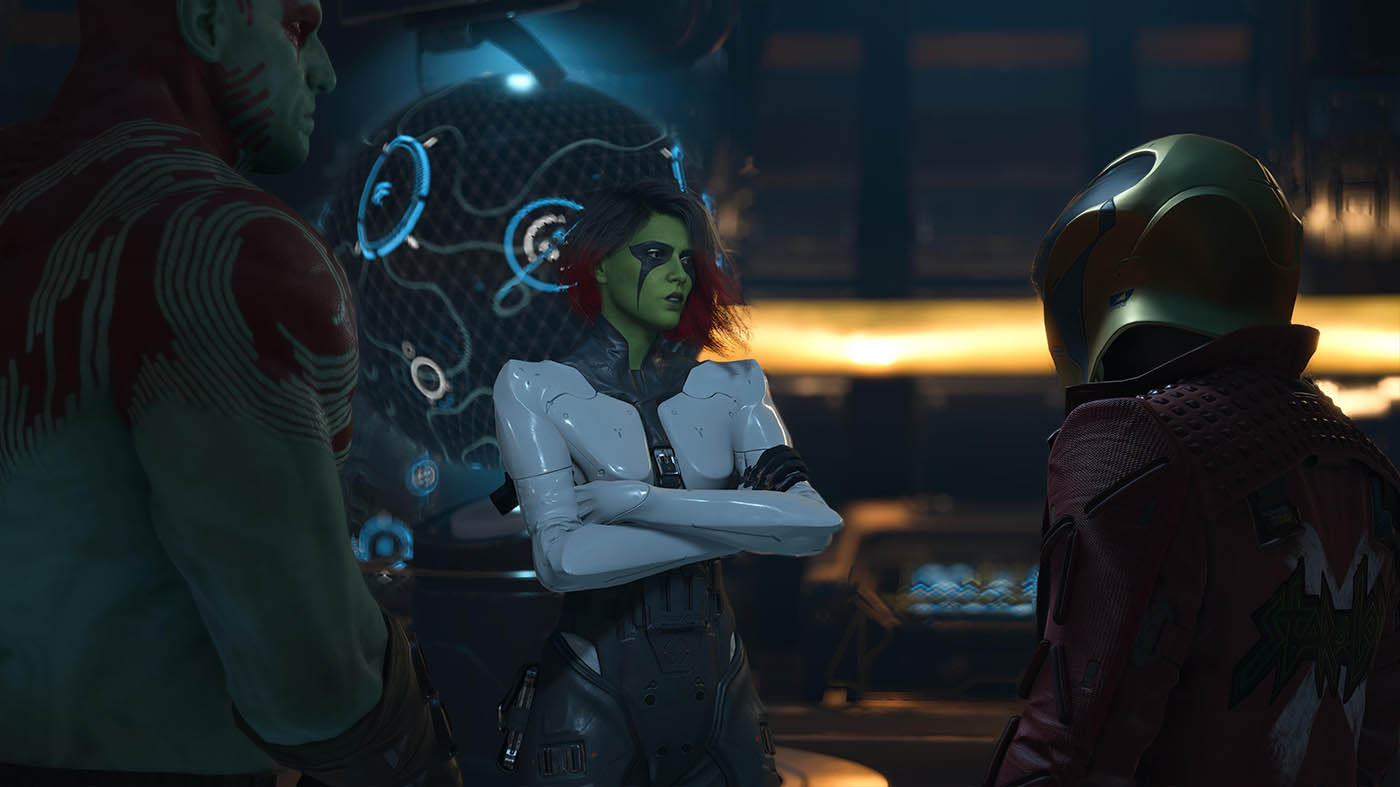
After seeing the small ways in which Marvel’s Guardians of the Galaxy aims to communicate the feeling of leading a team of intergalactic outlaws on dangerous, space-faring adventures I’m keen to see how it plays out across the game at large. Striking that balance between putting players in command and ensuring the rest of the Guardians still have an autonomy that fits with their characters can’t be easy, but from what I’ve played so far the team at Eidos Montreal has clearly paid careful attention to their treatment of these iconic characters.
We’ll no doubt have more to say about Marvel’s Guardians of the Galaxy closer to the game’s launch, but it’s good to finally get a feel for how Star-Lord functions as the game’s sole playable character and the Guardians’ Leader. At the very least, rest assured. This is definitely going to be one for the fans.
